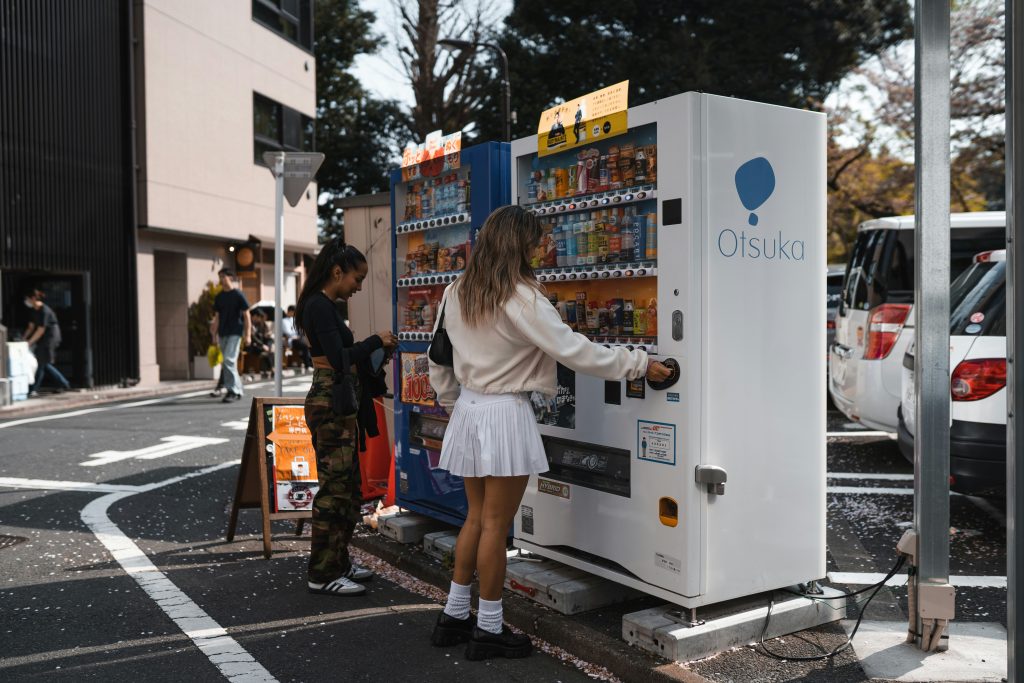So you’re thinking about jumping into the vending machine game? On the surface, it sounds like a sweet deal—buy a few machines, drop them in some high-traffic spots, and boom, money shows up while you chill. But before you start dreaming of snack money rolling in while you binge Netflix, let’s talk about what it actually takes. Spoiler: it’s not as hands-off as a lot of people make it seem.
Your Location Can Make or Break You
This part right here? It’s everything. You could have the fanciest vending machine stocked with the most Instagram-worthy snacks, but if it’s sitting in a dead zone, it won’t make a dime.
The tricky part is, most of the hot locations—gyms, office buildings, malls, schools—already have vendors locked in. You’ll have to get a little scrappy. That might mean convincing a business owner to give you a shot or offering them better terms than whoever’s there now. Basically, you’ve gotta sell yourself and your setup.
And even if you snag a good spot, you’ve still gotta make sure the traffic matches your products. Energy drinks and protein bars? Probably better for gyms. Candy and chips? Offices eat that up. But be warned—where there’s money to be made, there’s usually someone already making it. You won’t be the only one sniffing around for those prime spots.
Also, expect to share a slice of your profits. Most property owners want a cut, usually between 5% and 25%. Don’t just shake hands on it—get everything in writing. Nail down things like how long the deal lasts, how often you restock, and what happens if the location flops.
By the way, I went into even more detail on this in this vending machine guide, so check that out if you’re serious about getting started.
Don’t Fall for the “Passive Income” Hype
Vending machines get tossed into the same category as other so-called passive income hustles, but let me be real—it’s not passive. Not even close.
You’ve got to haul drinks and snacks, restock every week or two, fix jammed machines, deal with angry texts when someone’s Funyuns get stuck, and keep everything looking decent. One broken machine can screw up your whole weekend.
Even if you only have one or two machines, expect to spend a couple of hours a week messing with them. Scale up and you’re looking at part-time job hours. Some folks even turn it into a full-time thing, but that doesn’t happen by accident—it’s work.
That said, if you’re cool with putting in the time and you’re chasing something that gives you flexibility, this hustle’s worth looking into. Just know what you’re getting into before you drop thousands.
If you’re thinking about stacking vending on top of something else, like driving for Uber Eats or selling on Poshmark, you might want to read about folks who’ve already blended a few things together. Here’s how this guy built seven streams of income to get the wheels turning.
Let’s Talk About Money—Because It Adds Up Fast
Starting this kind of hustle isn’t exactly pocket change. You’ll feel the pinch right out the gate.
Used machines usually run $1,200 to $3,000. If you want a brand-new one with all the bells and whistles—touchscreens, card readers, fancy displays—you’re easily in the $3K to $10K range. And that’s per machine.
Then there’s your inventory. You can’t just throw in whatever’s on sale at Costco and call it a day. You’ll want variety, stuff people actually want to buy, and sometimes seasonal products, which means more spending and tracking. Oh, and some of it’s gonna expire before it sells. That’s just part of the game.
Also, little costs pile up—credit card processing fees, maintenance, gas for driving to your machines, insurance, business licenses… it’s a lot. If you’re not tracking your spending, this business can eat your profits alive. I’ve seen too many side hustlers fall into that trap. If you’re not already doing it, start tracking your expenses. Like, yesterday.
Tech Makes It Easier—If You’re Smart About It
You don’t have to go full old-school with a cash-only machine. Honestly, you shouldn’t. Most people don’t even carry cash anymore.
Card readers are practically a requirement now, and they’re not just for convenience—they usually come with sales tracking tools built in. You’ll be able to see what’s selling and what’s not without even opening the machine.
If you plan to scale up, you’ll also want to look into a vending management system (VMS). It’ll ping you when something’s out of stock, help you plan your restocks, and just make life easier. It’s not cheap, but if you’ve got more than a few machines, it’s a game saver.
Tips From Folks Who’ve Actually Done This
If you’re serious about getting into this world, don’t just wing it. Talk to people. Watch YouTube videos. Lurk in vending forums. The vending community is surprisingly open with advice, and they’ve been through all the mistakes already.
Start small. Get one machine. Learn the ropes. Figure out how to price things, how often you’ll need to restock, and what snacks actually move. Once you’re comfortable, you can add more.
Stock variety matters, too. Don’t just fill the machine with Cheetos and Coke. Try some healthier stuff, mix in a few random items people don’t expect, and see what hits. Variety helps you stand out.
And keep your machines clean. It sounds dumb, but a dirty or half-empty vending machine kills sales fast. If you want to build good relationships with property managers and keep people coming back, take care of your machines.
This is one of those hustles where attention to detail really matters. If you’re a checklist person, this might help you stay on track.
Should You Do It?
Vending machines can be a fun way to make extra cash, but they’re not for everyone. If you’re not down for physical work, dealing with customers, or chasing down property managers, you might burn out fast.
But if you’re organized, a little sales-savvy, and cool with some hands-on work, this hustle’s got potential. Start slow, stay consistent, and keep your expectations real.
And if vending ends up not being your thing? No stress. There are a ton of other ways to make extra money. Here are a bunch you can explore today, no vending machine required.







